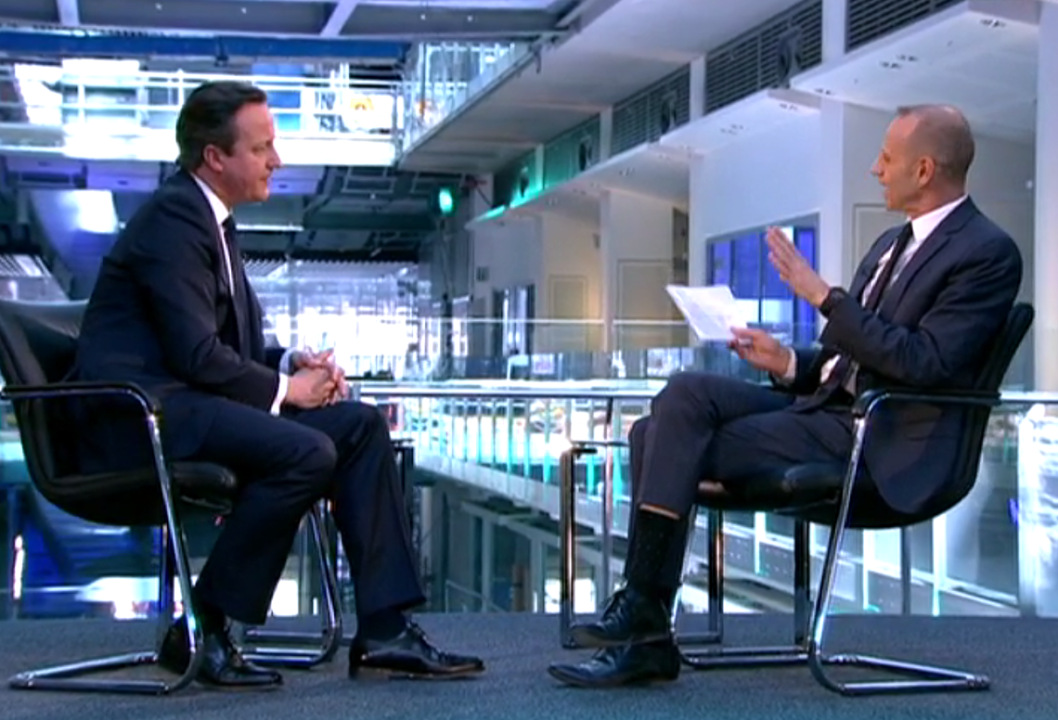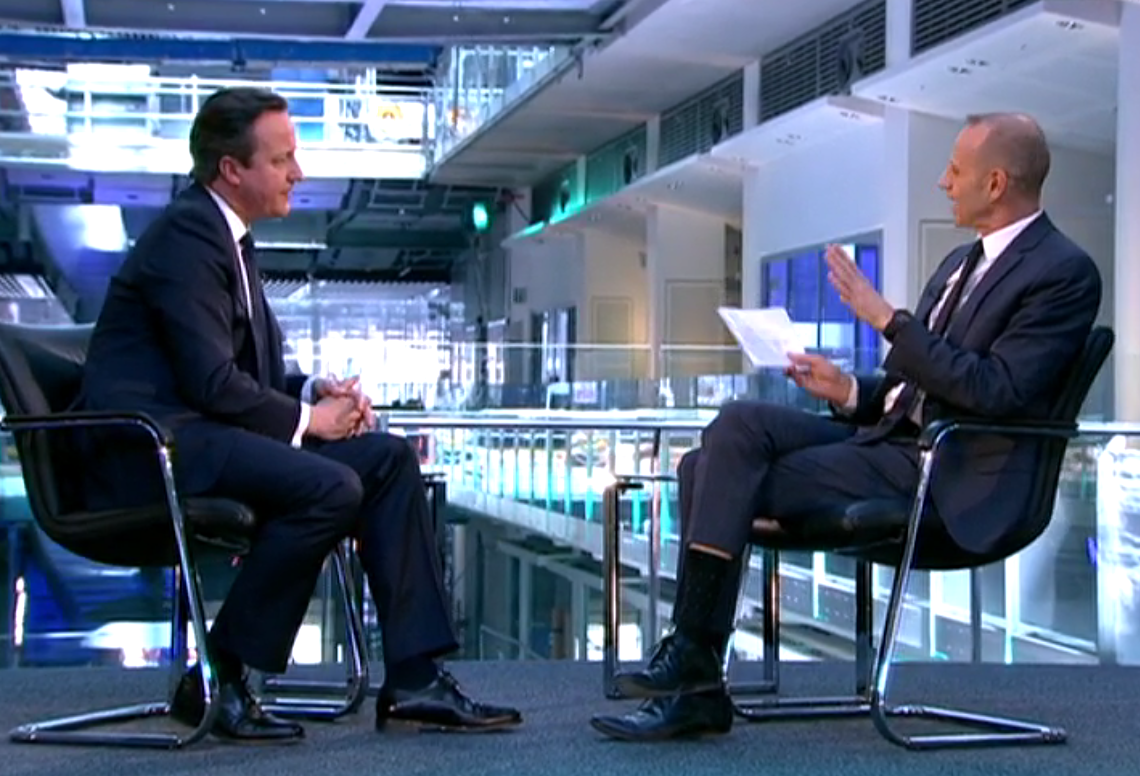A new target! Getting “at least close” to the target. Cameron is lucky that Davis didn’t mention todays news from Libya, a country he was pleased to visit post-Gaddafi but won’t be returning to in a hurry. If you do a drive-by shooting, as we did – an intervention without the budget to follow up – this is what can happen. Anyway, Davis and Cameron had a bit more to-and-forth on this:-“…have never got anywhere near two per cent. Britain has the second biggest defence budget in NATO. And frankly it is time for other countries, particularly European countries, to at least get close to the two per cent that we’ve achieved, been achieving year after year after year.”
My collegue Robert Smith also pointed out another amusing part of this: Cameron also said that Britain is “the fifth biggest defence budget in the world, we’re not the fifth biggest economy in the world”. Wrong – we’re now 6th on defence and after overtaking France we do now hold the no. 5 slot for economic strength. Cameron doesn’t even know how successful his economic reforms have been. There was some wrestling on welfare (no, Cameron can’t say were the £12 billion of welfare cuts would come from) but became agitated when Davis wanted to challenge him on the widely-shared suspicion that the Tories are a party for the rich. “This makes me more angry than almost anything else,” said Cameron – really? More than anything else? Davis invited him to vent anger at the “undeserving rich” – what could he mean? Politicians born into wealth who live in massive West London houses that they could never have afforded on an MP’s salary? I’m not sure if Davis was trying to personalise this, but Cameron tried to change the subject on to the poor. When repeatedly asked to grow angry at undeserving rich, Cameron offered up a semi-sweary word: “There are people who don’t pay their taxes who damn well should”. Davis played Peter Lilley’s ‘Little List” speech from the 1992 Tory conference – and kindly did not point out to Cameron that this is the guy he put on his own policy board. For his part, Cameron rather missed a chance to say that the clip shows how the party has changed. That today’s Tory leadership finds such views repugnant, and is reforming welfare for the sake of those caught within a bad system. It is out to help, not to ridicule or condemn. Or that’s what I like to think he thinks. Cameron gave a pretty ropey response that suggested he still half-agreed with Lilley:-Q: Can I be clear, we will meet the two per cent for every year that you are prime minister if you’re re-elected? A: I will make those decision if re-elected – Q: That’s not an answer. A: But it is an answer. Q: But no.
Davis finished asking about whether Cameron really is in it to win it:-“Tone is important, like you said. But there will be people watching this programme who go out, who work damn hard every day, they pay their taxes. They don’t pay their taxes so that people who can work choose not to. You know, the reward sometimes for irresponsible behaviour can drive people mad – can drive me mad and that’s one of the reasons to reform welfare.”
Q: So if you win in having the most seats and you don’t have a majority would you feel that’s a failure or a success? A: I’m going for a majority. Q: So a big failure? A: We are only 23 seats short. And if I fall short, I will feel I have not succeeded in what I want to achieve. It’s not about me. This is actually about people’s jobs, people’s livelihoods, the chance of a better future and I think the country frankly right now wants a majority government. A decisive government. A government that’s fully accountable. And there is this fear, rightly, that if we don’t get that we could end up with Ed Miliband propped up by the SNP really wrecking this country. And that frightens me.
If Cameron falls short still leads the largest single party, he will be punching the air. He should also be pretty pleased to have got through that interview unscathed.








Comments